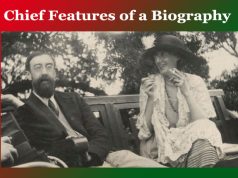Charles Dickens as a Novelist
Charles Dickens as a Novelist
Introduction to Charles Dickens as a Novelist:
Charles Dickens, born on February 7, 1812, in Portsmouth, England, remains one of the most celebrated and influential novelists in the history of English literature. His works, marked by vivid characters, social critique, and a keen understanding of human nature, have left an indelible mark on the literary landscape. Dickens’ novels are not merely tales of fiction; they are profound reflections of the societal complexities and moral dilemmas of Victorian England.
Early Life and Influences
Dickens’ childhood experiences greatly influenced his writing. His family’s financial struggles and his own time working in a blacking factory as a child provided him with firsthand exposure to the harsh realities of life for the lower classes. This period left an enduring imprint on Dickens, shaping his compassionate perspective toward the poor and marginalized.
Literary Career Beginnings
Dickens entered the literary scene in the 1830s as a writer of sketches and short stories under the pseudonym Boz. His early works, including “Sketches by Boz” and “The Pickwick Papers,” showcased his talent for vivid characterizations and his knack for satirical social commentary. The success of these early writings laid the foundation for Dickens’ illustrious career as a novelist. Charles Dickens as a Novelist
Master of Serialization
One of Dickens’ significant contributions to the world of literature was his mastery of serialization. Many of his novels, including “Oliver Twist,” “David Copperfield,” and “Great Expectations,” were initially published in serialized form in popular magazines of the time. This approach allowed Dickens to engage a wide readership and maintain suspense, making readers eagerly anticipate the next installment.
Social Critique and Reform
Dickens was a keen observer of the social issues of his time, and his novels served as powerful vehicles for advocating social reform. “Oliver Twist” exposed the harsh conditions of workhouses, “Hard Times” criticized the dehumanizing effects of industrialization, and “Bleak House” delved into the flaws of the legal system. Through his characters and narratives, Dickens highlighted the injustices and inequalities prevalent in Victorian society. Charles Dickens as a Novelist
Memorable Characters
One of Dickens’ greatest strengths lay in his ability to create memorable and multi-dimensional characters. From the endearing orphan Oliver Twist to the miserly Ebenezer Scrooge in “A Christmas Carol,” Dickens populated his novels with characters that resonate with readers long after the pages are turned. His characters often embodied specific social archetypes, making them both relatable and symbolic.
A Christmas Tradition
“A Christmas Carol,” published in 1843, remains one of Dickens’ most beloved works. The novella, with its timeless themes of redemption and generosity, not only captured the spirit of Christmas but also played a role in shaping modern Christmas traditions. The character of Scrooge, undergoing a transformative journey, has become an enduring symbol of the potential for personal redemption. Charles Dickens as a Novelist
Literary Style and Technique
Dickens’ writing style is characterized by a rich and descriptive prose that vividly paints the scenes and characters. His use of humor, satire, and pathos creates a compelling narrative that engages readers on both an emotional and intellectual level. Additionally, Dickens was a master of dialogue, giving distinct voices to his characters and capturing the nuances of social interactions. Charles Dickens as a Novelist
His Influence
Charles Dickens’ impact on literature and culture extends far beyond his lifetime. His works continue to be studied in schools and universities, and his characters have become archetypes ingrained in the collective imagination. Many of Dickens’ themes, such as social justice, poverty, and the resilience of the human spirit, remain relevant to contemporary society. Charles Dickens as a Novelist
Conclusion
Charles Dickens, a literary giant of the Victorian era, used his pen as a potent tool for social criticism and storytelling. His ability to craft compelling narratives, populate them with unforgettable characters, and address the pressing issues of his time solidified his place in the literary canon. Dickens’ works not only reflect the societal challenges of the 19th century but also offer timeless insights into the complexities of the human condition. As we continue to revisit his novels, Charles Dickens stands as a literary luminary whose influence transcends time and place. 0 0 0. Charles Dickens as a Novelist
Charles Dickens as a Novelist
Reviews of the Novels of Charles Dickens
Charles Dickens’ ‘Oliver Twist ’-A Review
Charles Dickens’ David Copperfield-A Review
Charles Dickens’ Great Expectations-A Review
Charles Dickens’ ‘A Tale of Two Cities’-A Review
Charles Dickens’ ‘Bleak House’-A Review
Charles Dickens’ ‘Hard Times’-A Review
Charles Dickens’ ‘Nicholas Nickleby’-A Review
Charles Dickens’ The Pickwick Papers-A Review
Charles Dickens’ Little Dorrit-A Review
Charles Dickens’ Our Mutual Friend-A Review
Charles Dickens The Old Curiosity Shop-A Review
Charles Dickens’ ‘Martin Chuzzlewit’-A Review
Charles Dickens’ ‘Dombey and Son’-A Review
Charles Dickens’ ‘Barnaby Rudge’-A Review
Charles Dickens’ ‘The Mystery of Edwin Drood’-A Review







